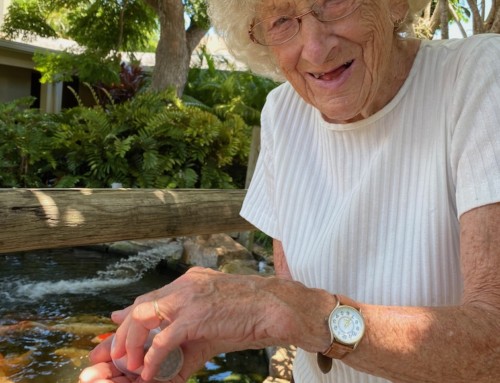Dementia is an extremely complex disease. In fact, it isn’t just one disease but a wide array of disorders that can uniquely affect each individual. Some aspects of dementia are commonly found across the entire population of those with the condition, but more often than not, the type of care required will differ for each person. Surprisingly, dementia also varies wildly between genders, and all caregivers should know the unique aspects of the condition and how it can progress in different people. Let’s discuss the gender differences of dementia, why they matter, and how they play into overall care.

Differentiation of Gender in Dementia
Dementia is a spectrum of neurological disorders that can erode the mental faculties necessary for daily functioning. While the prevalence of dementia increases with age, affecting both men and women, the way it manifests and progresses varies depending on gender. Dementia appears to be twice as common in females compared to males.
Key Differences in How Dementia Affects Men and Women
- Prevalence and Risk Factors: The risk for women developing Alzheimer’s is about 1 in 6 for those over age 65, compared to 1 in 11 for men. Alzheimer’s is one of the most prevalent and well-understood forms of dementia. Men may have a higher risk for vascular dementia, influenced by lifestyle factors and cardiovascular health.
- Symptoms and Progression: Women generally experience a more rapid decline in cognitive functions, including memory, language skills, and problem-solving abilities. Men with dementia are more prone to exhibit behavioral challenges, such as aggression or apathy, which may require different management strategies and safety precautions.
- Genetic Factors: Certain genetic factors, like the presence of the ApoE4 allele, increase the risk of developing Alzheimer’s more significantly in women than in men.
- Social and Psychological Impact: Women may face more significant social isolation following a dementia diagnosis, compounded by the fact that they are often primary caregivers for others, leading to a loss of their usual support roles.
Men may experience a more pronounced loss of identity, especially if their self-perception is closely tied to professional achievements or physical independence. - Caregiving Needs: Women’s faster cognitive decline necessitates earlier and more comprehensive care planning to address their long-term needs. The caregiving approach for men may need to focus more on behavioral management and maintaining physical activity to mitigate symptoms.It is impossible to preemptively know how dementia will progress or what type of care someone who has dementia will need. These differences, however, show us that experienced staff and understanding of dementia needs are crucial for the long-term success of seniors with dementia.
Assisted Living and Memory Care’s Role in Dementia Support
Caregivers must be equipped with knowledge and tools to address the specific needs of seniors, whether that involves managing the more rapid decline often seen in women or the behavioral challenges more common in men. However, they also need to know that there is no one-size-fits-all approach to dementia care. If you are a close family member of someone with dementia trying to provide care while living your life, you know how taxing full-time caregiving can be.
Assisted living and memory care facilities look at each resident as an individual, not just a member of a group. Only through personalized plans and knowledgeable staff can your family members get the most out of their stay at a memory care facility.
Interested in learning more about how our facility can help your family member with dementia? Contact A Banyan Residence today to schedule a tour and discover the specialized support we can provide.







